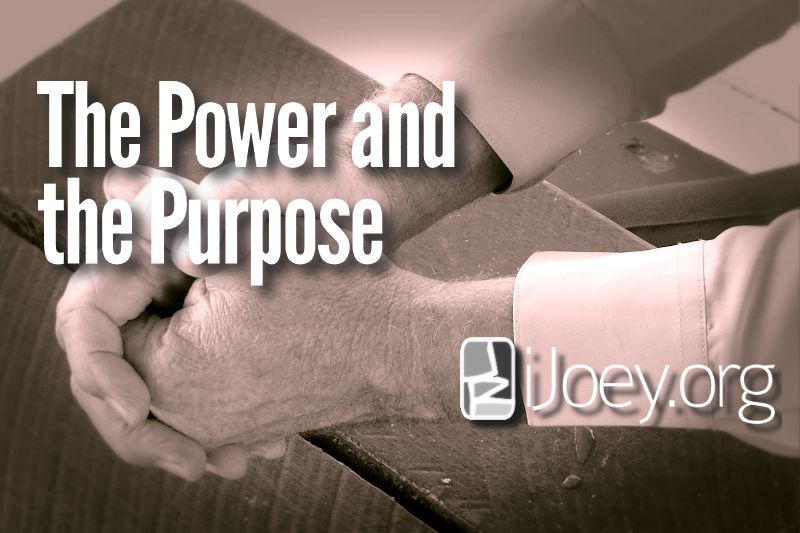Most pastors I know are busy chasing after better ways to lead a congregation, me included. I’m happy to report that I’ve rediscovered the power and the purpose of christian discipleship. And you probably already know exactly what it is and how it works. The problem is in being intentional about it. More about that later.
Having looked at a dozen different ways to be a better leader (and that’s just counting the ones that bore some fruit), I can tell you a few that get you closer to the solution, but are not solutions in and of themselves.
It’s Not Administration
I’ve studied a dozen methods of “getting it together” from a leadership standpoint. For example, I’ve really come to admire Thom Rainer’s material in “Simple Church” to formulate better administration and practices of discipleship. We are a very efficient outfit here at Grace UMC. We have good people working on good projects, and we maintain our clarity, focus, alignment, and movement with a fairly rigorous regularity.
But that’s just keeping the lights on and the volunteers organized. Program Churches can easily get caught up in the calendar, content, and confusion, running to keep ahead of the tastes of the masses to offer a timely bit of material and programming. There is more to it than content: The content has to get the participant closer to where he or she wants and needs to be.
It’s Not Worship
I’ve studied Adam Hamilton‘s method of worship preparation and planning to create better opportunities for staff and volunteers to coordinate their efforts to plan worship around the scripture and homiletic theme for the day. I spend a few days planning a few months ahead so that we can deal with the details well ahead of time. We have a focused theme that stretches across liturgy, music, and word to unite the content into one topic. But that’s not the real power or purpose of our discipleship.
So What Is It?
Let’s ask a different question: What effect are we achieving as a congregation, as individual disciples? A lot of the time, we are like athletes who rarely train and never compete — or the fishing outpost that doesn’t fish. The power of the Holy Spirit cannot be defined in a methodology or a set of practices without a clear purpose. The purpose of the congregation is more than the effective deployment of staff and volunteers to achieve a mission goal if that goal doesn’t point to a clear purpose.
The Westminister Shorter Catechism defines our clear Christian purpose at its outset.
Question: What is the chief end of man?
Answer: Man’s chief end is to glorify God, and to enjoy him forever.
The Wesleyan catechism mentions similar:
Question: What great purpose is obvious throughout the creation of God?
Answer: The manifestation of God’s own glory and the happiness of his creatures.
How do we enjoy God? How do you enjoy anything? You experience it. You devote a little time to it.
Name something you enjoy. About half of us will name a food or flavor at this point. That’s fine. In fact, we are told to “Taste and see that the Lord is good,” in Psalm 34. The Greek word behind the word we know as ‘taste’ happens to be ‘geuomai.’ It means, literally, ‘to experience.’
Sadly, we seldom allow ourselves to experience God. Church becomes an exercise in knowing about God. We chase theology. We argue and debate our church practices. We fight about whether God wants us to do this that or the other thing.
But how often are we stopping our routine to experience God?
Experiencing God
If I had to guess, I’d say that very few of us Christians could help someone to enter into an experience of the Divine.
We know many of the words. We know much of the Scriptural descriptions. We even know some of the practices of our faith which are well-worn paths to that particular well of experience.
But are we choosing to utilize them? And when we make the choice to practice our faith, are we doing so with the expectation of encountering God?
Ask yourself these questions and answer honestly:
- When did I last spend time in conversational prayer, listening as well as honestly expressing myself to God?
- How am I dedicating time and effort to the practice of what God has offered me through faithful teachers?
- When did I last seek out the goodness of God in the world around me and share my findings with those dear to me?
If your answers were meager, then I suggest you spend less time on the institutional debates and seek out the One who loves you and desires intimacy with you.
I’d like to formally invite you to fully enjoy the pleasure and wonder of God’s presence in your life.
Take a moment and describe your last experience of God in the comments section below. Maybe it will help remind someone else that the best part of being a Christian is being known by God.


















Recent Comments